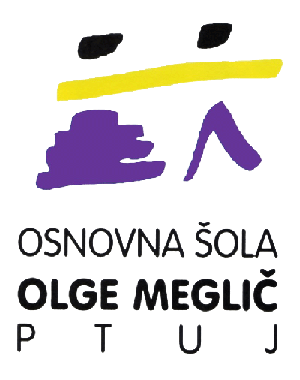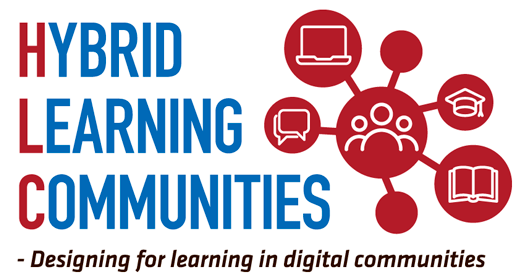Partners
 |
SOSU Østjylland is the second largest social and healthcare VET college in Denmark. We provide different educational programs – as well as supplementary training of educated staff members – for social and health care institutions and for home care for elderly. Besides we educate and train staff for the child care sector. We provide VET education and youth education including EUX – a combination of Highschool and VET education and also EUD10 – 10th grade of the primary school. We continuously develop innovative pedagogic and didactic training material and organize work practice, and we work closely together with the employers in the field. We have more than 25 years’ experience in training and further education of care staff and since 2007, validation of prior learning has been a part of our activities. We have about 170 fulltime employed staff members and 20 external professionals connected to our daily educational field of work. Our students are in the age from 15 to 60 years old, and have more than 50 different ethnical and cultural backgrounds. October 2021 our Erasmus+ project »TECHSenior« was awarded with the EITA award (the European Innovative Teaching Award). EITA is a new European Commission policy initiative, aiming at highlighting and rewarding the work of teachers and schools and to showcase innovative teaching practices. |
 |
OŠ Olge Meglič Ptuj Primary school OŠ Olge Meglič, which was founded in 1979, is located in the oldest Slovenian town, Ptuj. It is attended by almost 400 students in the age range of 6 to 15, and it employs around 40 teachers. Its formidable location in the old town centre, just below the castle, next to the town library and within a walking distance of the Ptuj City Theatre and Ptuj City Cinema, provides numerous educational opportunities. As the only school in the town centre, we closely cooperate with our local community. OŠ Olge Meglič, which is known as “Olgica”, is a modern school in which teachers strive to enable every pupil to develop their full potential. A lot of attention is paid to creating a positive classroom climate, which results in positive relationships and respectful communication. We are continuously implementing modern teaching methods, which are more student-centred, and digital learning tools, which increase student engagement. We also put a special emphasis on formative assessment, the development of key competencies for lifelong learning and transversal skills. After the lockdown in 2020, special attention is being paid to our students’ mental health, their social and emotional development skills and solving their emotional distress. That is why we carry out various preventive activities that deal with the physical and mental health of our students. Besides the basic school programme, we offer our students several extracurricular activities, non-compulsory optional subjects, and after-school classes. Our school also takes part in numerous projects, such as Healthy School, Eco School, FIT Pedagogy, Sustainable Mobility, Startup Business Programme, Erasmus+ and many more. Our willingness, drive, creativity and responsible professional work ensure quality implementation of the educational programme, which is tailored to the needs of our students and which prepares them for further life’s challenges. |
 |
Esbjerg Realskole Esbjerg Realskole is the town of Esbjerg’s oldest private school with proud traditions that go back more than 125 years. We have a curious outlook and strive to be at the forefront while at the same time valuing our traditions. We focus on education and community when, with the help of our values of well-being, professionalism, and dialogue. We are a versatile and directed school with an optimistic culture and open environment that embraces all skills, different attitudes, and constructive input. We take care of each other and succeed together. Our mission is to develop each child’s potential and educate professionally strong, caring, and creative children. We put the children at the center and create a safe environment where education takes place through cooperation and developing dialogue. The children meet committed teachers and pedagogues – who take time for everyone. Everything we do aims to create the best environment for the children. We bring our hearts to work every day and ensure our students thrive. At the same time, we equip them with the high level of professionalism that characterizes Esbjerg Realskole. |
 |
Kópavogsbær In Kópavogsbær there are in total nine primary schools and two independent schools which includes almost 5.000 students aged from 6 to 16. Arrangements for schooling are made in various ways and you can find more information about it on the schools’ websites. The guiding light of school work in Kópavogur is to provide students with a comprehensive education and promote their development in cooperation with the homes. The primary schools in Kópavogsbær are recognized as a pioneer in the use of technology in education in Iceland and for its innovative teaching methods. Kópavogsbær is also known for its welcoming and inclusive environment, with a diverse student body representing many different nationalities. In 2015, the municipality of Kópavogur started introducing tablets as learning tools and software for study. Since then, teachers have focused on developing teaching methods in line with technological developments. In the beginning, only the oldest students were introduced to the tablets (1:1) but sin ce then all students now have tablets to use in their school projects. Students startsto go home with the iPads in 5th grade for doing homework and it became a good handy during the Covid 19 pandemic. iPads have brought about significant changes in learning and teaching over the past 5-7 years as they have been introduced in the school. Research shows improved well-being at school, increased satisfaction and interest in learning, greater flexibility and individual focus on learning, and improved teachers’ ability to meet the needs of each and every student. These are all changes that improve school work, but at the same time are hardly conducive to improving the results of measurements designed to evaluate traditional school work with its emphasis on reading, arithmetic and the ability to take standardized multiple-choice tests. |
